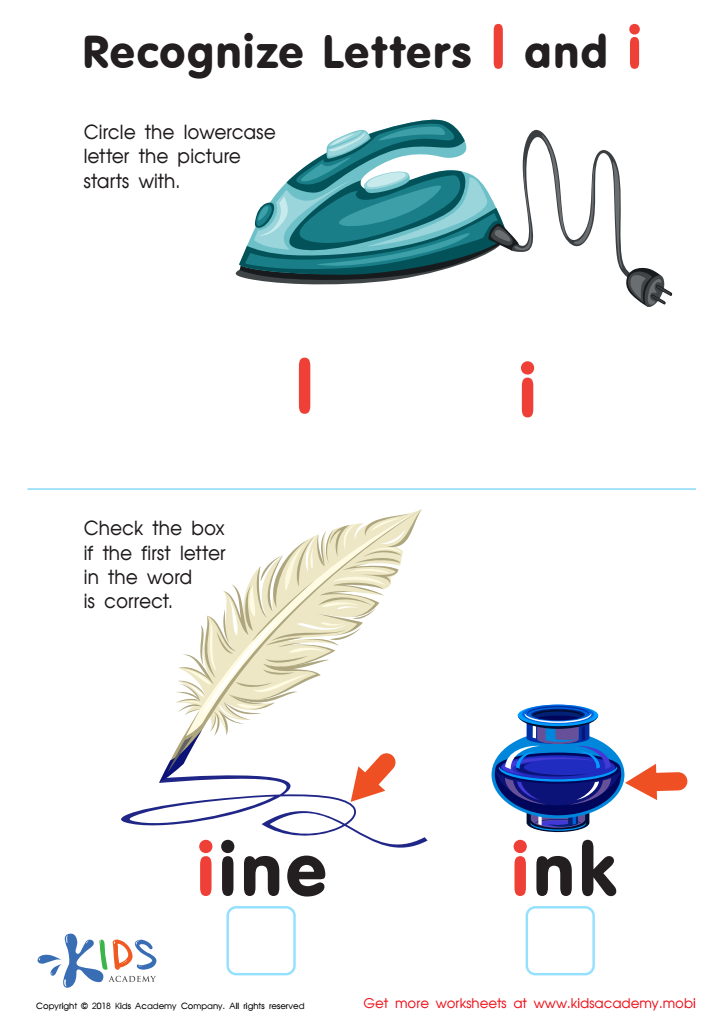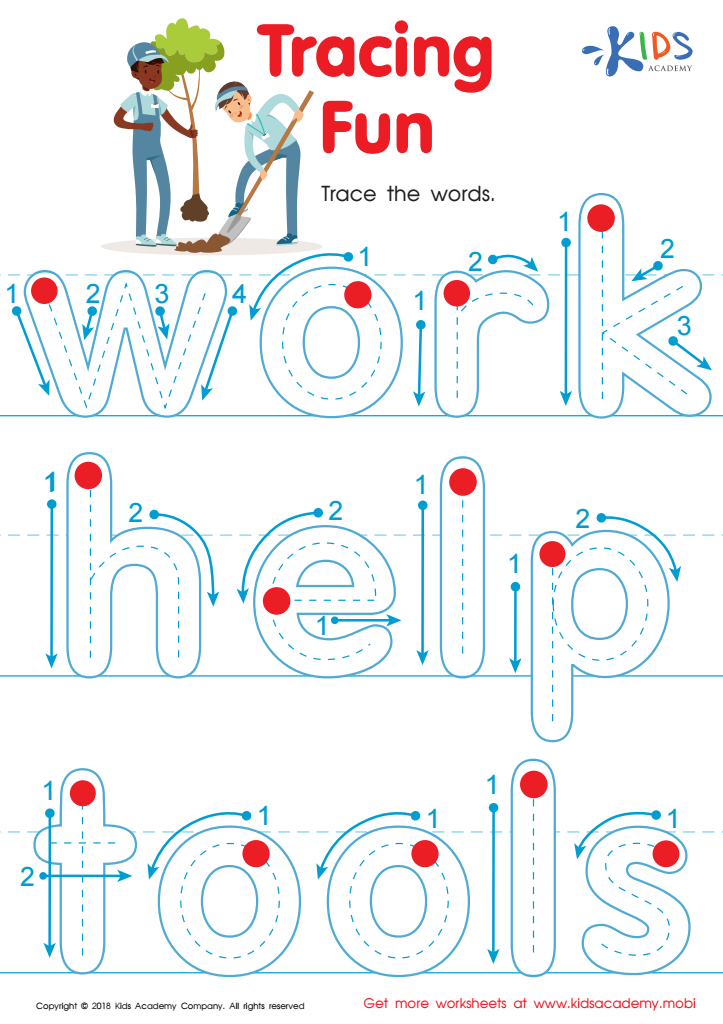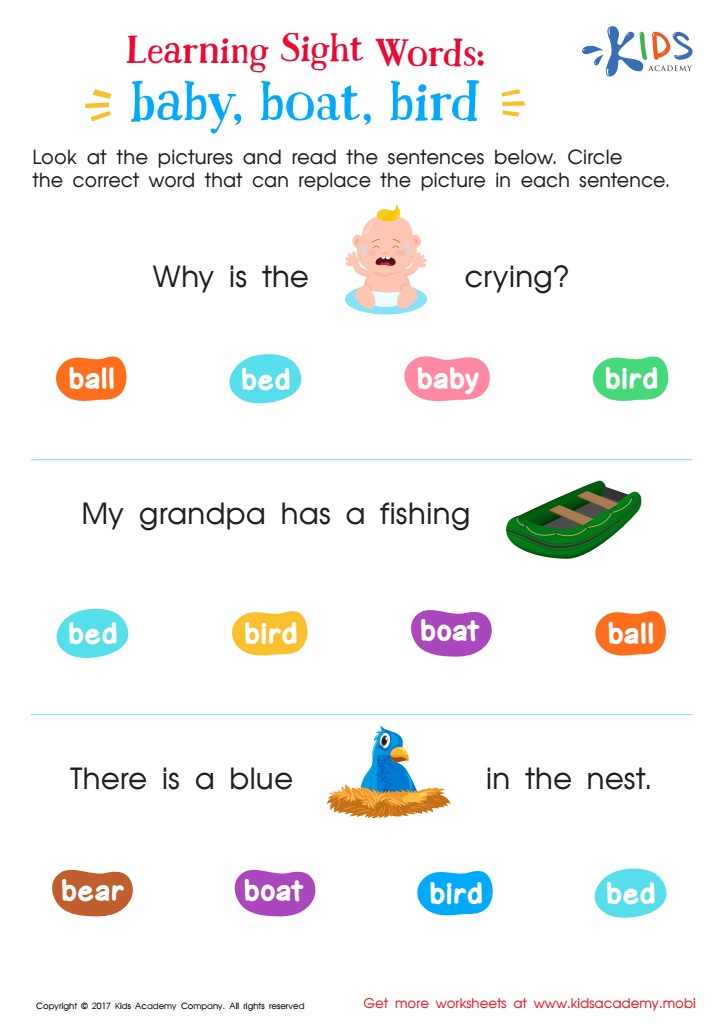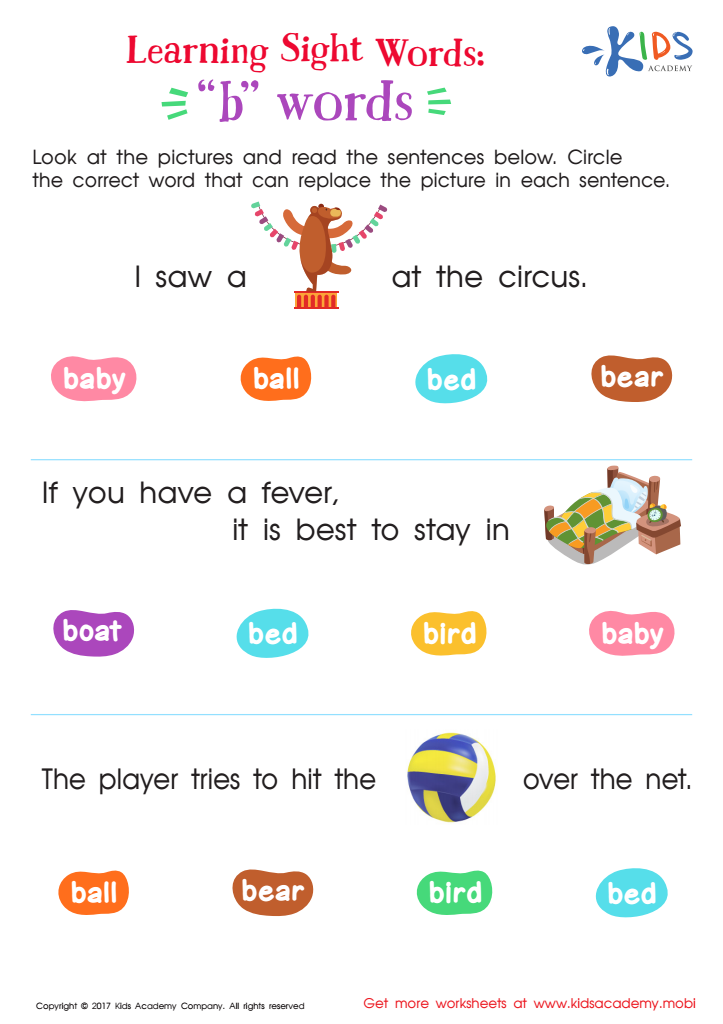Letter recognition Normal Building Vocabulary Worksheets for Ages 6-7
4 filtered results
-
From - To
Introduce your young learner to the world of words with our "Letter Recognition Building Vocabulary Worksheets" designed for ages 6-7. These engaging and educational activities help children enhance their reading skills by focusing on identifying letters and building a robust vocabulary. Each worksheet is thoughtfully crafted to make learning fun and interactive, fostering confidence and academic growth. Perfect for classroom or at-home practice, these resources pave the way for successful reading development. Delight your child with vivid, captivating exercises that combine entertainment with essential literacy skills. Boost your child's reading journey by downloading these valuable worksheets now!


Recognize Letters l and i Worksheet


Tracing Fun Worksheet


Baby, Boat, Bird Worksheet Sight Words Worksheet


"B" Words Printable Sight Words Worksheet
Letter recognition and vocabulary building are fundamental stepping stones in a child's educational journey, especially for ages 6-7. Parents and teachers should prioritize these areas for several reasons:
Firstly, letter recognition is the bedrock of reading. Children who can easily identify letters can better decode words, fostering smoother and more confident reading experiences. This skill is crucial for literacy development, as it leads to better comprehension and more enjoyment of reading activities. When children recognize letters, they can focus on blending sounds and understanding words, making the learning process less frustrating and more efficient.
Secondly, vocabulary building at this age is essential for cognitive development and academic success. A rich vocabulary allows children to express themselves more clearly and effectively, both in speech and writing. It also enhances comprehension, as children with a broad vocabulary can better understand stories, instructions, and information presented to them. This strong foundation supports learning across subjects, not just in language arts.
Moreover, early emphasis on these skills helps instill a lifelong love of learning. Children who possess strong letter recognition and a growing vocabulary are more likely to become enthusiastic readers and active participants in their education.
Therefore, fostering letter recognition and vocabulary growth for young learners sets the stage for academic excellence and personal development.

 Assign to My Students
Assign to My Students















.jpg)














